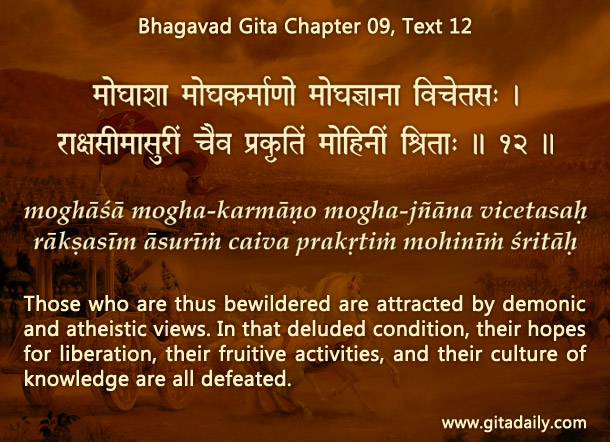Spiritual knowledge is not just propositional – it is also transformational
Some people downplay spiritual knowledge, deeming it merely propositional. They hold that various teachers make various propositions about the nature of reality; none of these propositions are factually verifiable. Choosing among them, therefore, is simply a matter of personal belief without evidence.
Significantly however, the Gita’s spiritual knowledge is not just propositional; it is also transformational. That is, it provides us practices that can transform our consciousness, and that transformation serves as evidence for the reality of its propositions.
The Bhagavad-gita (09.02) states that the knowledge it provides can be realized through direct experience by appropriate practice. The best such practice is bhakti-yoga, which purifies and elevates our consciousness from the material level to the spiritual level. At that level (06.20-23), we realize the Gita’s basic propositions: we are souls, parts of God, Krishna; and we are meant to love and serve him, relishing lasting joy therein. How do we realize these propositions? By experiencing for ourselves how harmony with Krishna is sublimely enriching; it frees us from craving for everything else and it makes us strong enough to weather life’s greatest reversals. And in the court of our head and heart, that inner transformation serves as decisive testimony for the reality of spirituality.
Significantly, proposition coupled with verification is the way even science gains knowledge. When Newton saw an apple falling, he proposed that a force called gravity attracts objects towards each other. Subsequent experiments served as verifications for that proposition.
Spiritual truths, being non-physical, can’t be verified materially. But they can be realized experientially by those enterprising enough to adopt appropriate practices.
Thus, the Gita’s spiritual knowledge is like a higher-dimensional science – it offers both coherent propositions about reality and potent practices for verifying those propositions. Thus, knowledge and practice propel us towards the supreme treasure of realization.
Think it over:
- How is the Gita’s knowledge not just propositional?
- What serves as testimony for the Gita’s propositions?
- How is the Gita’s knowledge like a higher-dimensional science?
To know more about this verse, please click on the image
Explanation of article:
Podcast:


Leave A Comment